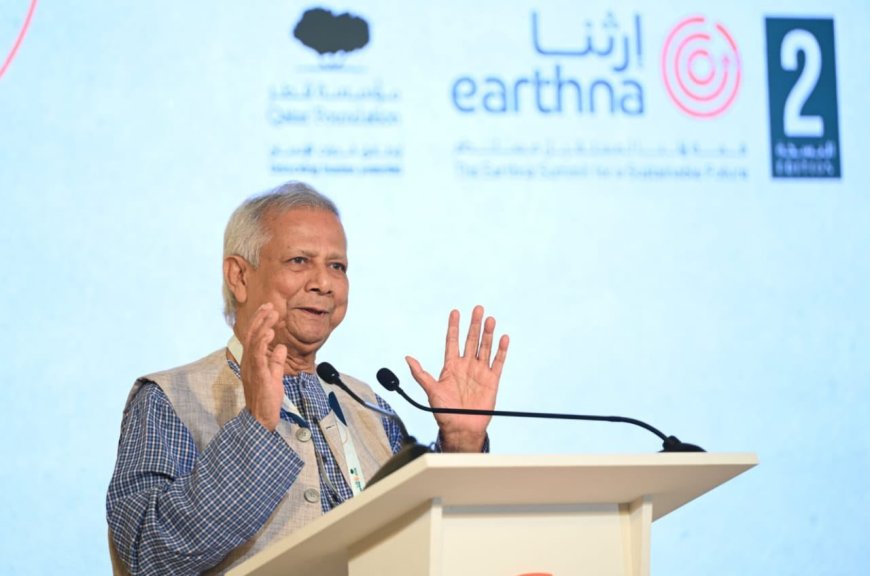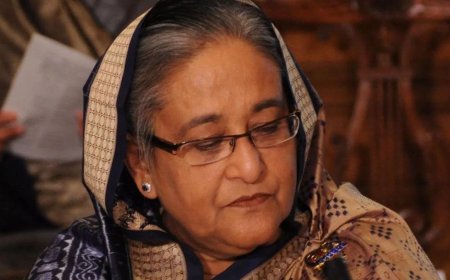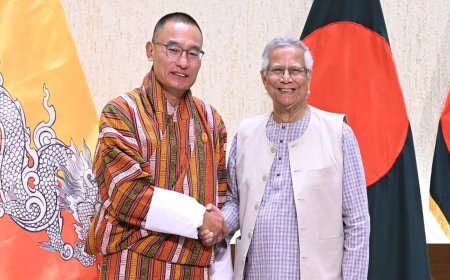World Must Not Overlook Crises in Palestine and Rohingya: CA
World Must Not Overlook Crises in Palestine and Rohingya: CA

Chief Adviser Professor Muhammad Yunus, while delivering the keynote address at the Earthana Summit held in Doha, Qatar, issued a strong call to global leaders to pay sustained attention to the protracted humanitarian crises in Palestine and among the Rohingya community. Emphasising the moral and humanitarian urgency of these situations, he stated unequivocally that “Palestinians are not expendable,” and urged the international community not to ignore the suffering endured by populations from Palestine to the Rohingyas in Bangladesh.
Highlighting the broader implications, Professor Yunus warned that impunity and a blatant disregard for human rights pose serious threats to global development. He described the ongoing humanitarian crisis in Palestine as not merely a regional concern, but a matter of collective human conscience that impacts the entire world.
Addressing the plight of the Rohingyas, the Nobel Peace Laureate remarked that the prolonged crisis in Myanmar continues to jeopardise peace and stability in the region. He acknowledged Bangladesh’s generous and sustained efforts in hosting over 1.2 million Rohingya refugees over the years, despite the heavy social, economic, and environmental toll it has borne. Referring to the recent visit of the UN Secretary-General to the refugee camps in Bangladesh as a gesture of global solidarity, he reiterated that while international assistance persists, a durable solution lies in the safe, voluntary, and dignified repatriation of the Rohingyas to their homeland in Myanmar.
Professor Yunus further reflected on the multitude of challenges confronting the modern world. He underscored the fact that while the global community aspires towards a resilient, equitable, and sustainable future, several interconnected threats—ranging from eroding multilateralism and escalating climate change to intensifying geopolitical conflicts—could derail these ambitions.
He expressed deep concern over the rapid transformation of global norms, technological landscapes, and governance frameworks, which are rendering many established assumptions obsolete. In this context, he stressed that there is an urgent need for renewed international and regional cooperation to address emerging crises and uphold shared values.
Reinforcing the necessity of peace and stability as foundational pillars for sustainable development, Prof Yunus noted that ongoing conflicts and wars are eroding basic human rights and disrupting economies across the world. He also drew attention to the climate crisis, which he described as an existential threat, warning that financial support for global climate action might decline in the future unless collective measures are taken.
Critiquing prevailing global economic values, he stated that societies have embraced self-destructive lifestyles driven by limitless consumption. Profit maximisation, he said, is treated like a natural law, propelling the global system towards unsustainable outcomes. In contrast, he proposed a new paradigm focused on the creation of social businesses to eliminate wealth concentration, achieve zero unemployment through entrepreneurship, and ensure zero net carbon emissions.
In his concluding remarks, Professor Yunus envisioned a new civilisation that is inclusive, equitable, and environmentally responsible. He asserted that only through such a transformation can the global community realise the goals of sustainable development for all people, everywhere.
What's Your Reaction?




















































































